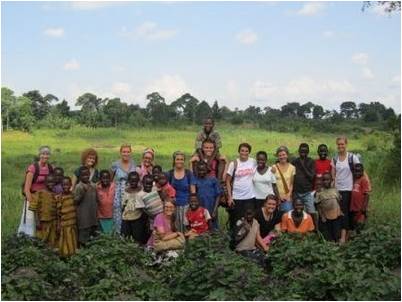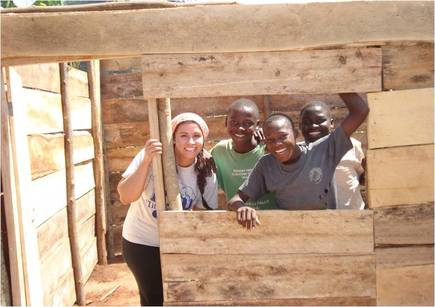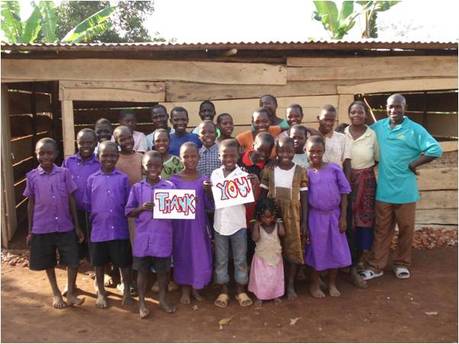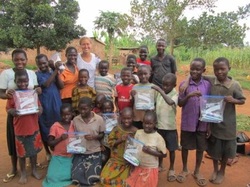By Jayme Mendenhall
CREED was able to put together 360 school kits to send to Holy Cross Anglican School situated on a little island called Ambergris Caye just off the coast of Belize. There are about 400 children at the school and they come mostly from poverty stricken homes. The school kits were transported by a barge from the mainland, arriving just before Christmas.
During the school’s Christmas party, Santa came and distributed the school kits to the children. They took pictures of each child receiving their school kit from Santa. The children were excited to have the new supplies for school. Many of the children come from homes of such poverty that this was their only Christmas gift; and it was one that enabled them to continue with their schooling! The administration and teachers at Holy Cross are dedicated to educating these sweet children and helping them grow and develop. The children themselves are cute and have happy dispositions; they are eager to learn.
Two of the biggest hurdles that had to be overcome to make this delivery a success were funding and shipping. Funding was needed initially to get the school kits put together and then again to have them sent. Shipping is normally a very expensive part of the process, but CREED was able to coordinate efforts with another non-profit that helped with the shipping. While this helped the expenses greatly, it then meant working on someone else’s time table; then the challenge of getting the kits through customs etc. Each step seems to have its own particular set of obstacles to rise above. We are grateful to those who helped make this delivery such a success!
Ralph Hardy was recently in charge of delivering the school kits that went to three other schools in Belize. 45 children received school kits at the Iguana Creek School in the village of Celena; 65 children at the village school in San Marcos; and 30 children at the Cayo Deaf Institute in the Central Farm area. The students were also given a pair of flip flops to wear. Several of the teachers decided to keep back some of the notebooks for future use so they wouldn't get used up so quickly. The children were happy to receive the school kits and flip flops as these were much needed items for them. Thanks to all of you for your support of the children of Belize!
On a side note, the school kits that have been sent to Haiti are awaiting delivery. It took a long time to ship them and get them through customs due to the political unrest in that country. We are looking forward to having them delivered by March.Comments (0) | Trackbacks (0) | Permalink






 RSS Feed
RSS Feed

